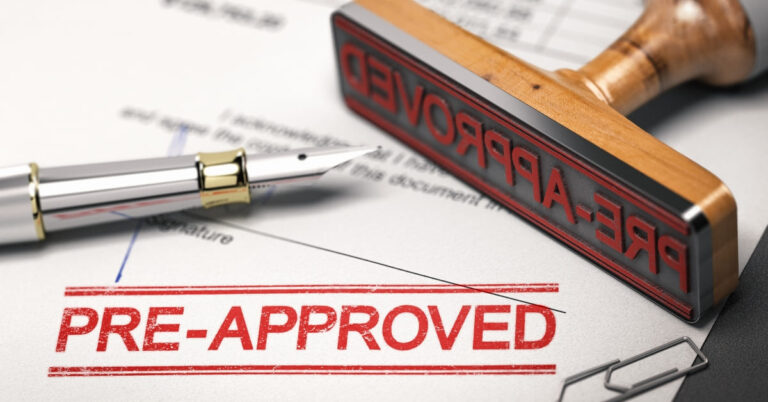Mortgage approval is a crucial step in the home-buying process. It signifies a lender’s belief in your ability to repay the loan, allowing you to purchase a home.
A mortgage approval is the gateway to homeownership. It allows you to build equity, create a stable living environment, and enjoy the benefits of owning your own property.
It demonstrates your financial stability and creditworthiness. It shows that you are financially responsible and capable of making consistent payments.
Knowing you have mortgage approval can give you confidence during the home-buying process, allowing you to focus on finding the right property without worrying about financial uncertainty.
In essence, mortgage approval is a vote of confidence in your financial health and a stepping stone towards achieving your homeownership goals.
As a mortgage broker, I understand the complexities of the mortgage approval process. While your credit score plays a significant role, it’s not the only factor that lenders consider.
Several other factors can significantly impact your chances of securing a home loan. Let’s explore some of these hidden elements:
1. Debt-to-Income Ratio (DTI)
The Debt-to-Income Ratio (DTI) is a vital financial metric that lenders use to evaluate your ability to manage debt effectively.
It’s calculated by dividing your monthly debt payments by your gross monthly income. A higher DTI may indicate financial strain and could make it difficult to meet your obligations.
Lenders typically have maximum DTI limits that they are willing to approve. To improve your DTI, you can reduce debt, increase income, or consider refinancing existing debts.
By understanding your DTI and taking steps to improve it, you can increase your chances of securing a mortgage approval and achieving your homeownership goals.
2. Employment History and Stability
A consistent and stable employment history is essential. Lenders prefer applicants with a track record of steady income. Frequent job changes or gaps in employment can raise concerns about your ability to repay the loan.
To improve your employment history, avoid frequent job changes, explain any gaps in your employment, and highlight your achievements in previous roles.
Remember, a strong employment history is just one factor that lenders consider, but it can significantly improve your chances of securing a mortgage.
3. Down Payment Percentage
The amount you put down as a down payment can significantly impact your mortgage terms. A larger down payment generally results in lower interest rates and fewer restrictions.
However, even with a smaller down payment, government-backed programs like FHA loans can make homeownership more accessible.
When considering your down payment, balance the benefits of a larger down payment with your financial situation to make an informed decision.
4. Type of Mortgage
The type of mortgage you choose can significantly impact your eligibility for approval and the terms of your loan.
Different mortgage types have varying requirements and benefits, such as conventional mortgages, FHA loans, VA loans, and USDA loans.
When choosing a mortgage type, consider your financial situation, credit history, and the type of home you are interested in.
Consulting with a mortgage professional can help you determine the best option for your needs.
5. Property Value and Location
The property’s value and location play a role in the lender’s decision. Lenders want to ensure the property is a sound investment and that it will appreciate over time.
Property value and location are two crucial factors that lenders consider when evaluating mortgage applications.
A property’s value serves as collateral for the loan, and the neighborhood’s desirability can influence its price.
When selecting a property, consider both its value and location to increase your chances of mortgage approval and secure favorable terms.
6. Credit History Beyond the Score
While your credit score is important, lenders also examine your credit history for risk indicators. Late payments, collections, or bankruptcies can negatively impact your application.
Lenders examine factors such as payment history, credit utilization, length of credit history, recent credit inquiries, and derogatory marks.
To improve your credit history beyond your score, pay bills on time, keep balances low, limit new credit, and dispute errors on your credit report.
By understanding these factors and taking proactive steps, you can increase your chances of mortgage approval.
7. Income Documentation
Income documentation is a very important component of the mortgage application process. Lenders require thorough verification of your income to ensure that you have the financial means to repay the loan.
Common forms of income documentation include pay stubs, tax returns, bank statements, and proof of self-employment income.
By providing complete and accurate income documentation, you can demonstrate your financial stability to lenders and increase your chances of securing a mortgage approval.
8. Assets and Reserves
Having additional assets and savings can demonstrate your financial stability. These can include savings accounts, investments, or retirement funds.
Assets and reserves can significantly benefit your mortgage application by demonstrating your financial stability.
They can be used for down payments, closing costs, and emergency funds. Common types of assets include savings accounts, investments, real estate, and vehicles.
By documenting your assets and reserves, you can improve your chances of mortgage approval and secure more favorable loan terms.
9. Mortgage Insurance Requirements
Mortgage insurance protects the lender in case you default on your loan. If you’re putting down less than 20% of the purchase price, you will typically be required to purchase mortgage insurance.
The cost of mortgage insurance can vary depending on factors like your credit score and loan-to-value ratio.
While mortgage insurance can add to your monthly expenses, it can help you qualify for a loan with a smaller down payment.
There are options to cancel mortgage insurance when your loan-to-value ratio reaches a certain threshold or by refinancing your loan.
10. Loan-to-Value (LTV) Ratio
Your LTV is the ratio of the loan amount to the property’s value. A higher LTV generally means a higher risk for the lender, which could result in stricter terms or a higher interest rate.
By understanding these hidden factors, you can better prepare for your mortgage application and increase your chances of approval.
Conclusion
By understanding all the factors that influence mortgage approval, you can better prepare for your application and increase your chances of securing a loan.
Improving your credit history, maintaining steady employment, and saving for a larger down payment can make a significant difference in your approval odds.
Additionally, exploring various mortgage types and understanding their implications can empower you to make informed decisions aligned with your homeownership goals.
Remember, the mortgage approval process is not one-size-fits-all. As a mortgage broker, I encourage prospective homeowners to consult with a mortgage professional who can provide personalized guidance and strategies according to their unique circumstances.
By working with a qualified mortgage broker, you can navigate the complexities of the process, receive personalized advice, and increase your chances of achieving your homeownership dreams.

Leena Sohal, a Principal Broker, brings over 20 years of mortgage industry experience to her role as a licensed mortgage broker for the past 15 years. Starting her career with industry giants TD and CIBC, Leena established a foundation based on integrity and professionalism. As the driving force behind Max Mortgages, she is dedicated to simplifying the mortgage process for clients, offering personalized service in the ever-changing housing market.
Under her leadership, Max Mortgages, a local independent business in the Greater Toronto Area, has earned commendations for exceptional customer service, embodying a commitment to genuine assistance and lasting client relationships.
FSRA Lic. # M09000197


